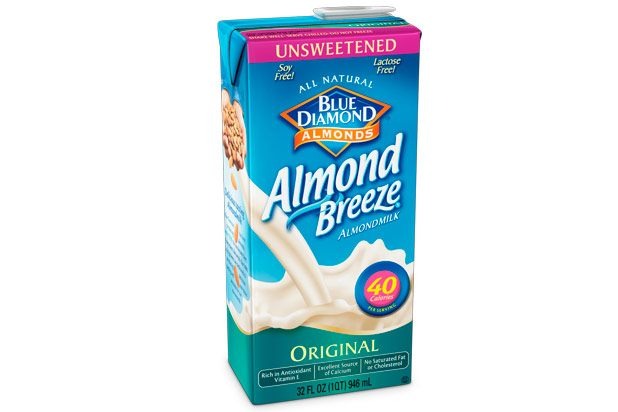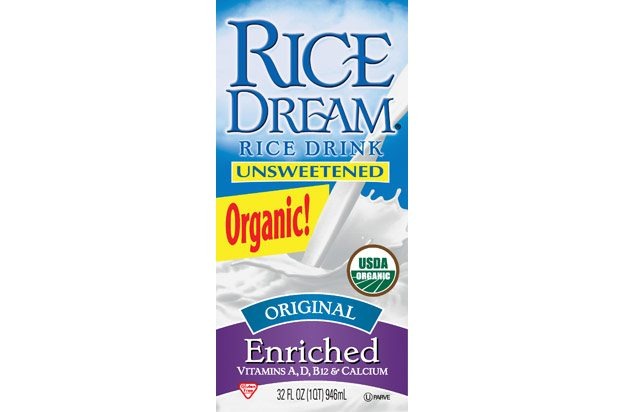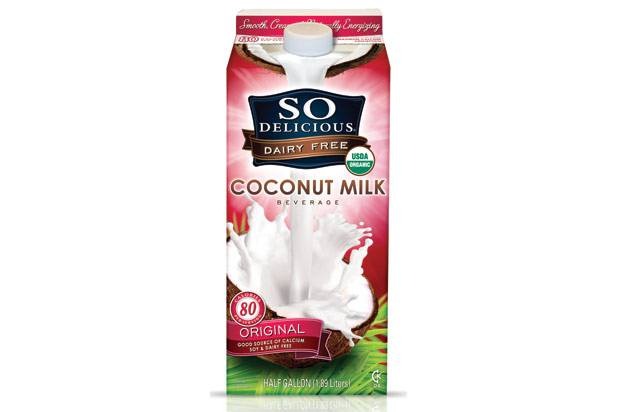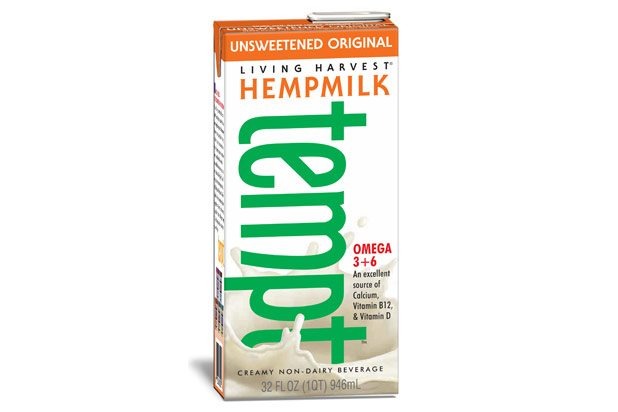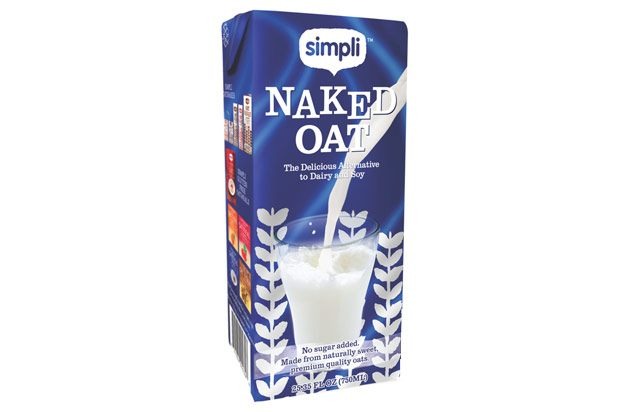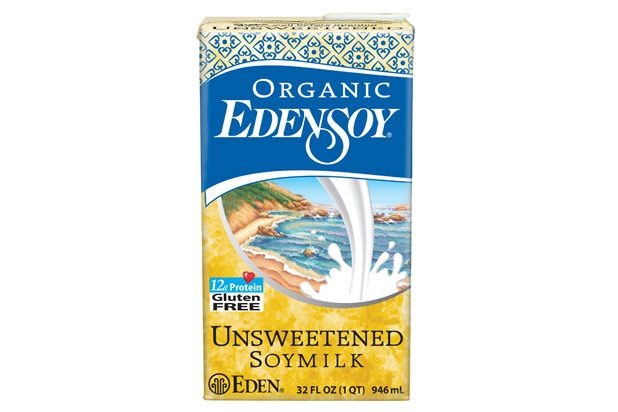6 Dairy Milk Alternatives
40 Calories, 3.5 grams of fat, 0 grams of sugar, 1 gram of protein
Almond milk is low in calories, with a mellow flavor and a consistency that is slightly thinner than regular milk. While there's a hint of almond taste, it's not too pronounced. The low calorie count makes it a favorite of those who are watching their weight; and since almonds are naturally high in calcium, a cup of almond milk will help protect your bones as well. Amy Margulies, registered dietician and lead dietician at Retrofit, points out that almond milk is "high in vitamin E, monounsaturated fats, and adds a touch of sweetness to whatever you are using it with." There's one downside to almond milk, however: it's low in protein, so you'll need to get protein from somewhere else. It's also not suitable for those with nut allergies.
Rice Dream Rice Milk
70 calories, 2.5 grams of fat, less than 1 gram of sugar, less than 1 gram of protein
Rice milk has a sweet taste and a thin, watery consistency, which means it works better for cereal and drinking than cooking and baking. If you do choose to make rice milk your alternative of choice, make sure that you don't turn to it as a protein source; it has virtually nil. Since it doesn't contain nuts, gluten, or (obviously) lactose, it's a great option for those suffering from a variety of allergies. It has a naturally sweet taste and a texture similar to fat-free milk.
So Delicious Coconut Milk
80 calories, 5 grams of fat, 6 grams of sugar, 1 gram of protein
Coconut milk comes in several varieties: the canned product, commonly used for cooking, and the variety that comes in a carton. The carton coconut milk is lower in calories and has a lighter, watery flavor in comparison to canned coconut milk. While coconut milk can be an attractive option for those who prefer a light and naturally sweet flavor, keep in mind that the drink is high in saturated fats. This milk works well for cereal and in both cooking and baking, but it's not recommended for hot drinks such as coffee and tea. Coconut milk also isn't great as a source of protein.
Living Harvest Tempt Hemp Milk
70 calories, 6 grams of fat, 0 grams of sugar, 2 grams of protein
Don't fear the hippie aura of this milk. Hemp milk is great alternative for those who are looking for the nutrition benefits offered by a seed. While the drink is high in fat, it contains the ideal ratio of omega-3 and omega-6s, which "most Americans lack in their diet," says naturopathic doctor, Ivy Branin. Hemp produces mild, creamy milk that works well for baking and drinking solo. (And don't worry, it has no connection to marijuana.) It might not be the best choice for your morning caffeine fix, however, as it has quite a bitter taste when added to coffee. Although it's suitable for those who suffer from nut allergies, it's best to ask your doctor before trying hemp milk.
Simpli Naked Oat Milk
100 calories, 2.5 grams of fat, 10 grams of sugar, 2 grams of protein
Oat milk has the added benefit of being sweet without added sugars, thanks to the natural sweetness of the oats themselves. But beware, some companies add sweeteners to oats in order to cater to America's sugar-crazed taste buds. Since the drink is made from whole oats, it has a moderate amount of fiber to help increase satiety. It also has more protein than most non-dairy drinks, making it a good option as long as long as you look out of a brand without added sugar.
Eden Organic Soy Milk
120 calories, 6 grams of fat, 2 grams of sugar, 12 grams of protein
Soy may have gotten a bad rap recently, but it still has quite the impressive nutritional profile. It is the only non-dairy milk that can be a true dairy substitute, not only because of its vitamin D and calcium levels, but also because of its high protein levels. Soy milk has a thick consistency that works well in coffee, where it resembles cow's milk. Since soy has a dairy-like consistency, it works great as a substitution in baking and cooking, in addition to other uses. Because the verdict is still out on the dangers of soy, it's best to consume the drink in moderation to avoid developing an allergy.
